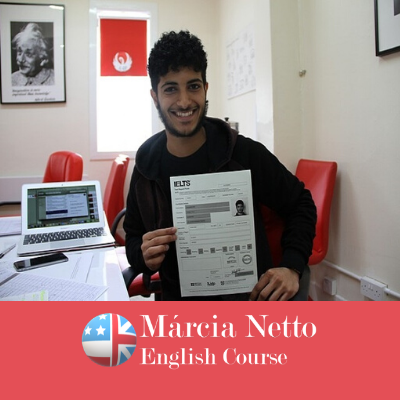IELTS PREP COURSE

The IELTS exam is globally recognized as the benchmark for English language proficiency, and achieving a high score can open up a world of opportunities for study, work, and migration. Whether you’re planning to pursue higher education abroad, seek employment in an English-speaking country, or simply wish to assess your language skills, this course will provide you with the guidance and practice you need to succeed.
Now, let’s take a look at what this course entails and how it will help you achieve your goals.
- Comprehensive Content: This course has been designed to cover all four sections of the IELTS exam – Listening, Reading, Writing, and Speaking. Each section will be addressed in detail, providing you with a solid foundation and advanced techniques to tackle the different question types effectively.
- Practice Materials: Throughout the course, you will have access to a range of authentic IELTS practice materials, including sample tests, reading passages, listening exercises, and writing prompts. These materials will help you familiarize yourself with the exam format and provide ample opportunity to practice your skills.
- Targeted Strategies: We will focus on specific strategies and techniques to optimize your performance in each section. You will learn how to approach different question types, manage your time effectively, improve your reading speed, develop coherent writing responses, and enhance your speaking fluency and coherence.
- Mock Exams and Feedback: To assess your progress and build confidence, we will take regular mock exams that simulate the conditions of the actual IELTS test. You will receive detailed feedback on your performance, highlighting your strengths and areas for improvement.
- Individualized Support: You will have individualized attention to address your specific needs and concerns. Whether it’s clarifying concepts or providing extra practice materials.
This IELTS preparation course aims to equip you with the necessary skills, strategies, and confidence to achieve your desired score in the exam.
If you have any questions or need further information, please feel free to ask. I look forward to working with you throughout this course.
Course Features
- Lectures 121
- Quizzes 3
- Skill level B2
- Language Inglês
- Students 1
- Assessments Yes
-
Introduction to IELTS
- Welcome to the IELTS Prep Course
- Basic Information
- Differences between the Academic and the General Training
- Overview: Test Format
- Key Features and Tips: Listening, Reading, Writing, and Speaking
- Types of questions and tasks in each section
- The IELTS Scoring System
- Setting goals and creating a study plan
- A Study Contract
- Common Questions and Answers about IELTS
-
Extra
This is the module where specific needs will be added
- Knowledge of Structure: Verb Tenses- Test your knowledge
- Verb Tenses in English: General Overview
- Verb Tenses Quiz 1
- Verb Tenses Quiz 2
- Verb Tenses in English: Simple Tenses
- Verb Tenses in English: Continuous Tenses
- Verb Tenses in English: Perfect Tenses- Past Perfect
- Verb Tenses in English: Perfect Tenses- Present Perfect
- Expressing the Future
- Future in the Past
- IELTS Grammar: Phrases, Clauses and Sentences- Understanding the differences
- IELTS Grammar: The Sentence: Sentence Patterns
- IELTS Grammar: The Sentence: Definition/Types of Sentences
- IELTS Writing Key Assessment Criteria and Band Descriptors
- IELTS Grammar: The Sentence: Clauses / Types of Sentences
- IELTS Writing: Task 2- Essay Types
- IELTS Writing: Task 2- Thesis Statement
- IELTS Writing: Target 2- Task 2- Developing a Thesis Statement
- IELTS Writing: Target 3- Task 2- Organizing Your Writing
- IELTS Writing: Task 2- Identifying the Topic
- IELTS Writing: Task 2- Identifying the Task
- IELTS Writing Task 2- Brainstorming and Plan
- IELTS Writing: Task 2-How to Write an IELTS Essay
-
Writing Skills Development
- Understanding the different task types in the Writing section: Task 1 (Academic/General Training) and Task 2 (Essay)
- IELTS Writing Basics
- Overview and Writing Tips
- Marking Criteria and Scoring for IELTS Writing
- Writing Skills: Coherence and Cohesion
- Coherence and Cohesion:Transition Words
- Coherence and Cohesion: Pronouns
- Developing Coherent and Cohesive Paragraphs
- Writing Skills: Target 1- Determining the Task
- Task 1 GT- Writing a letter – Essential Elements
- Task 2- Paragraph Writing
- Structuring and organizing your writing effectively
- Task 2- Essay: Introduction
- Writing Skills: Target 4-Task 2-Writing the Introduction
- Task 2- Conclusion
- Task 2- The Use of Personal Pronouns in Essays for IELTS
- American and British English Spelling
-
Listening Skills Development
- Enhancing listening comprehension skills
- Strategies for understanding different accents and speech patterns
- Tips for managing time effectively in the Listening section
- Listening Tips
- Some more strategies for the listening section
- Note-taking techniques
- Listening Types of Questions
- Completing the Listening Answer Sheet
- IELTS Listening Quiz
- Completing the blanks: Number of Words and Spelling
- Completing the blanks: Gender and Number
- Completing the blanks: Articles
- Completing Blanks: Gerunds, Infinitives, and Base Form Verbs
- Listening Skills: Target 1- Making Assumptions
- Listening Skills: Target 2- Understanding Numbers
- Listening Skills: Target 3-Understanding the Alphabet
- Listening Skills: Target 4- Distinguishing Similar Sounds
- Listening Skills: Target 5- Listening for Descriptions
- Listening Skills: Target 6- Listening for time
- Listening Skills: Target 7- Listening for frequency
- Listening Skills: Target 8- Listening for similar sounds
- Listening Skills: Target 9- Listening for emotion
- Listening – Practice Test 1
-
IELTS Vocabulary
-
IELTS Grammar
- Grammar in the IELTS test
- Grammar tips for achieving higher scores
- IELTS Grammar: The Sentence: Types of Subjects and Predicates
- IELTS Grammar: Subject Verb Agreement
- IELTS Grammar: The Sentence: Simple Sentence
- IELTS Grammar: The Sentence: Compound Sentences
- IELTS Grammar: The Sentence: Run-on Sentences
- IELTS Grammar: The Sentence: Complex Sentences
- IELTS Grammar: The Sentence: Types of Complex Sentences
- IELTS Grammar: The Sentence: Parallel Construction
- IELTS Grammar: The Sentence: Irrelevant Sentences
- IELTS Grammar: Gerunds
- IELTS Grammar: Infinitives
- IELTS Grammar: Gerund and Infinitive
-
Reading Skills Development
- IELTS Reading: Overview
- Reading Tips and Skills
- Techniques for skimming and scanning texts
- Building vocabulary and improving reading speed
- Time management strategies for the Reading section
- Reading Skills: Target 1- Using the first Paragraph to Make Predictions
- Reading Skills: Target 2- Using the Topic Sentence to Make Predictions
- Reading Skills: Target 3- Looking for Specific Details
- Protegido: Reading Skills: Target 4- Analyzing the Questions and Answers
- Reading Skills: Target 5- Identifying the tasks
-
Speaking Skills Development
- IELTS Speaking
- Strategies for effective communication in the Speaking section
- Tips for managing nerves and gaining confidence in speaking
- IELTS Speaking Practice Lessons, Tips and Strategies- Part 1
- IELTS Speaking Practice Lessons, Tips and Strategies- Part 2
- IELTS Speaking Practice: Lessons, Tips and Strategies- Part 3
- Techniques for answering various question types
- Protegido: Speaking – Fluency & Coherence
- Protegido: Speaking – Lexis & vocabulary
- Protegido: Speaking – Grammatical Range and Accuracy
- Protegido: Speaking – Pronunciation
- Protegido: IELTS Speaking Test Full Part 1,2, 3 || Real Test
-
Suggestions for Self-Study Activities
Here are some suggestions for Activities you can do to improve your vocabular while you practice reading, writing, speaking and listening in English. All exercises done can be discussed in class or sent for correction.





